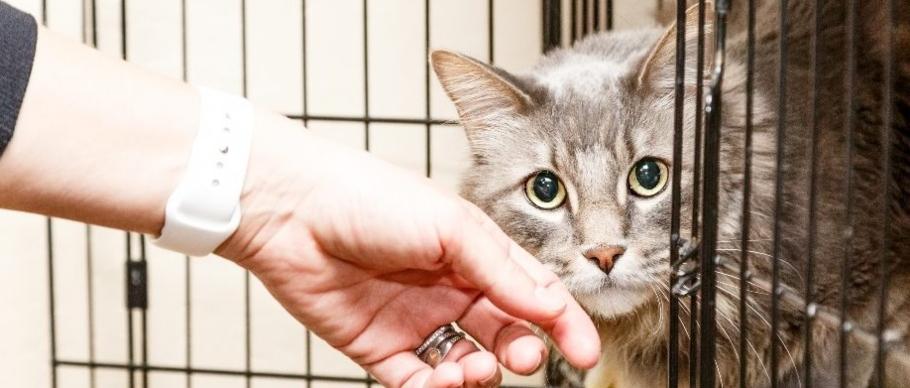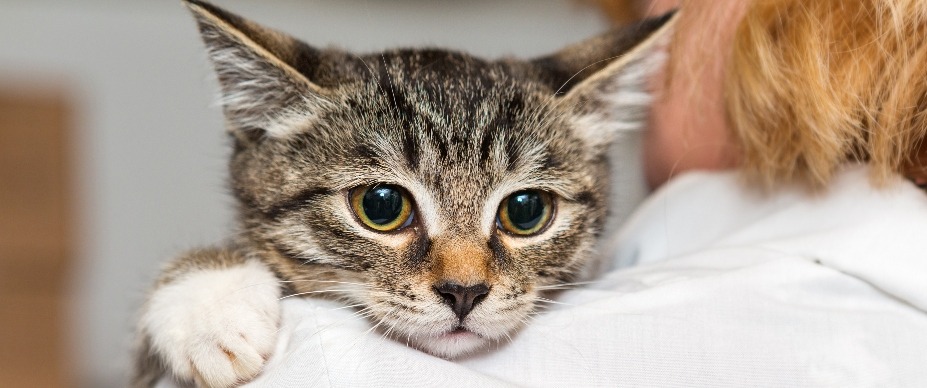Fostering a Cat: 6 Essential Questions Answered
Providing a safe, loving home is one of the greatest gifts you can give an animal in need. Even if it's not the right time to adopt a new furry friend, fostering a cat is more than a temporary alternative—it's a valuable way to bring joy into a pet's life while supporting your local animal shelter or rescue. We've answered key questions about cat fostering responsibilities, how the process works, and beyond.
#1: Why Do Cats Need to be Fostered?
Shelters and rescues cannot always accommodate every animal who needs a helping paw. About 3.2 million cats enter United States animal shelters every year, according to the ASPCA®, so it's easy to see just how congested these spaces can become. Cat breeding season (which usually lasts from March through October) further contributes to overcrowding, leading shelters and rescues to experience even more inundation with new kittens during these months.
That's where fostering comes in. Shelters and rescues rely on volunteers to temporarily take in some of these pets, thereby giving the organizations room to house additional adoptable animals. In fact, some groups may even allow fosterers to bring home multiple pets if extra space is needed. Fostering also socializes cats and prepares them for their forever homes. Many of these cats and kittens have little or no experience with humans, so providing a happy home helps familiarize them with people and family life.
#2: What Does It Mean to Foster a Cat?

When you decide to care for an adoptable cat, your top priorities will be keeping them healthy and providing the tools they need to thrive in their permanent home. During the fostering period—which can last anywhere from two weeks to several months—you should treat the animal as if they were your own pet. Fostering a kitten or adult cat also entails learning about their personality, which will come in handy when their shelter or rescue pairs them with a potential adopter.
You will also need to quarantine the foster cat from your pets in a safe, escape-proof area. Your furry friends must be up to date on their vaccinations and ideally should have peaceful temperaments. Jealous or aggressive pets should not be paired with an adoptable cat, especially if the feline is skittish or has not spent much time around other animals. Set your foster cat up for success knowing how to calm a cat during this time of change.
Expect to take the foster cat to their shelter or rescue for regular checkups. Most organizations have a rescue coordinator who will be your point of contact for questions regarding the foster animal's health and behavior.
#3: What's the Difference Between Fostering and Adopting?
If you want to give a furry friend a forever home and have the bandwidth to do so, adoption may be the better choice. You will have the option to choose from a variety of cats, allowing you to carefully pick out the right four-legged family member. Plus, adopting a cat permanently frees up an extra spot for another animal at the shelter or rescue.
Fostering, on the other hand, is a more flexible way to help an adoptable pet. Many shelters and rescues pay veterinary expenses and do not charge fosterers to bring pets home, making this choice highly cost effective. If you have never had a cat before, fostering can familiarize you with pet parenting and help you decide whether a kitty fits into your long-term plans. However, you may not have the opportunity to pick which cat you want, and it may be tough to part ways once you're emotionally attached to your temporary furry friend. That's why you must be in the right frame of mind when you consider fostering a cat.
#4: Am I Ready to Foster a Cat?
Although you might be tempted to start fostering as soon as possible, it's important to make sure you're prepared to bring home a new cat. Be sure to consider:
Family members – Fostering a cat should involve everybody under your roof. Make sure your entire family is comfortable with this commitment and willing to accept a kitty with open arms.
Supplies – You will need to purchase a variety of items before welcoming home a foster pet, such as food, treats, toys, a blanket, cat litter and litter box, water bowl, feeding bottle, scratching post, and carrier.
Space – As mentioned, you will need to provide your foster cat their own space to eat, sleep, and play. Make sure you have ample room for the kitty and your pets.
Time – All pets need love and attention—especially foster animals—so ensure you have enough time to care for every furry friend in your home. You should also confirm the length of the fostering period fits your schedule.
Patience – Your new kitty will probably need some time learning how to use a litter box and understanding which behaviors are acceptable. Remember, patience is a virtue!
#5: How Can I Take the Next Steps?

Once you decide it's time to foster a cat, you must reach out to your local shelter or rescue. This organization will ask you to fill out a fostering application, which may require your contact information and details about your current pets and living situation. If your application gets approved, you will be ready to start fostering!
The shelter or rescue will help you choose the best cat for your home and give you details regarding the length of the fostering period. You will also learn about any specific duties you must fulfill, such as taking the cat for regular veterinarian visits.
#6: How Else Can I Help Animals Needing Homes?
Fostering a kitten or adult cat isn't the only way to support animal welfare. Follow your shelter or rescue on social media and stay tuned to their pages to learn about food drives, fundraising events, volunteer opportunities, and other great ways to get involved. If you have a friend or relative who is considering a new pet, point them to a nearby rescue organization from which they can adopt. Of course, adopting a cat yourself is a tremendous way to save an animal in need!
Saying goodbye is perhaps the most difficult part of fostering a cat. It's not uncommon for people to adopt their foster cat, and many shelters are happy to oblige. Regardless of your path, fostering a dog or cat will give you the chance to help a loving animal live a happy, healthy, and fulfilling life.








